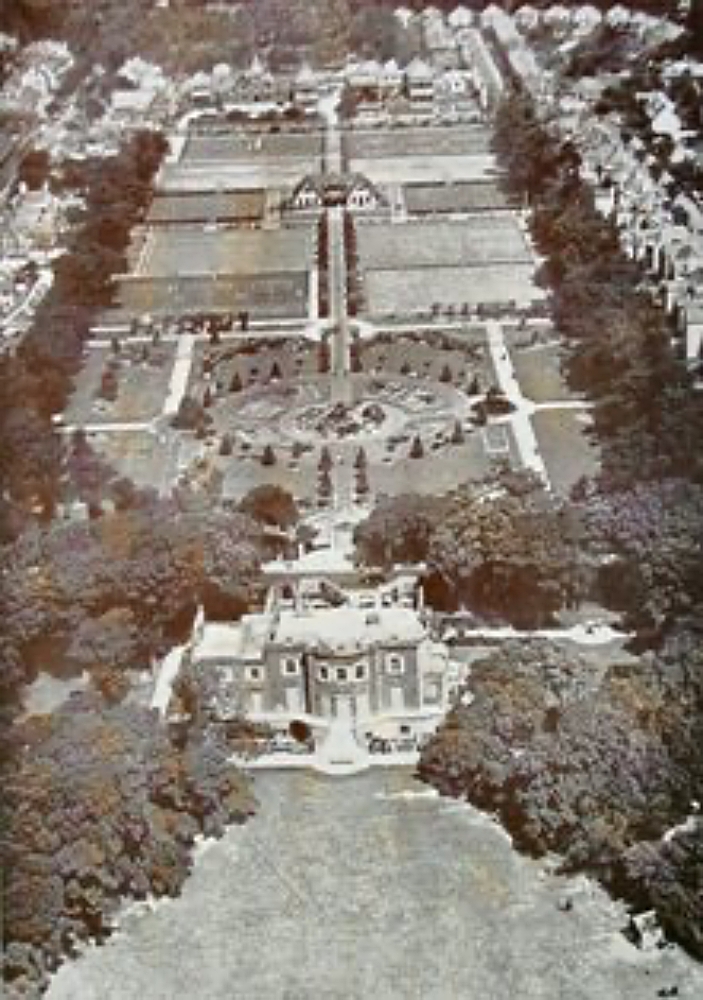Disgusted of Worthing…
JPD, of Brighton Road, Worthing, writes: Is it true that at the height of World War Two, when the majority of able-bodied citizens were fighting for the very existence of this country, Worthing was employing a force of men to improve the town’s bowling greens?

Freddie Feest replies: There is a grain of truth in this story but over the years it has become distorted. Here’s what really happened.
IMAGINE the divided feelings of Worthing’s population when, at the very height of World War Two, in 1942, a group of 12 men arrived in Beach House Park and began repairing the Worthing Corporation bowling greens.
The immaculate greens had been damaged by an enemy bomb and speculation was that they would now be dug up and replaced by much-needed vegetables to help stave off dire wartime food shortages.
Most available land, including sports grounds, school play areas and some parks, had already been turned over to the national aim of “digging for victory”, so ensuring the population’s survival, despite the German U-boat blockade of food imports.
Most of Worthing’s able-bodied men – and many women – of eligible age had gone off to fight in the war and all-too-many would never return. On the home front, even the Manor county cricket ground at Worthing had been dug up and turned into allotments.
So the sight of 12 able-bodied corporation workers repairing damaged bowling greens instead of digging them up and planting potatoes, was considered disgraceful by irate critics, who were quick to vent their anger. One even implied it was an act of treason!
Letters poured into the Worthing Herald.
“Disgusted of Worthing” wrote: “When Britain is fighting for its very existence, there are 12 Worthing Corporation men busy levelling and restoring bowling greens in Beach House Park.
To put it mildly, it seems incongruous that healthy men can be put to such a purpose when market gardens are calling out for workers . . . all my fellow allotmenteers, who, like myself, do a full-time job during the daytime, work growing food on our allotments until it is dark every night. It’s an example Worthing bowlers should follow.”
E.T. Wenban-Smith demanded to know: “They’ve ploughed up the children’s playground in Victoria Park so why employ 12 workmen to re-make yet another bowling green for the old gentlemen of Worthing? Potatoes should come before bowls in these critical times.”
Mr C. Bristow took a different view.
“A nation’s potato crop is at stake, so we are going to have a public meeting about it, to see how millions of gallons of potatoes can be grown on one or two little old bowling greens.
“I’d ask this. On what grounds should bowlers be allowed to play during wartime? My answer would be, on the same grounds that dancers, whist or bridge players and symphony concert listeners are allowed to use the Assembly Hall.
“One is to provide physical recreation for elderly men after arduous duties. Last year’s captain of Homefield Park Bowls Club, for example, was a white-haired ex-non-commissioned officer of the British Army. He joined the Home Guard at its commencement and still carries out those valuable duties. There are many other bowlers serving in the Home Guard and the Civil Defence services.”
Finally, Alderman Tree, chairman of the town council’s parade, parks and allotments committee, bit the bullet and declared: “The criticisms are ridiculous. These bowling greens are the best in the town and the workmen we have employed are no good for war-work. Some, who we obtained from the Labour Exchange, would otherwise be out of a job.
“The public seems to think the council looks after these greens purely for its own sport, but these greens are used by 130 playing members quite outside of the council.”
He then demonstrated foresight that was understandably rare in those traumatic and totally unpredictable times.
“Worthing is regarded as the bowlers’ Mecca,” he declared. “In the interests of the town – and even in time of war – we must not lose that reputation.”
A belief many would consider was vindicated in the post-war years, when that very reputation led to Worthing being chosen as the headquarters of the English Bowling Association.
Sixty-five years after the wartime controversy, Worthing can still boast some of the world’s finest bowling greens, with billiard-smooth surfaces that continue to be meticulously honed with loving care.